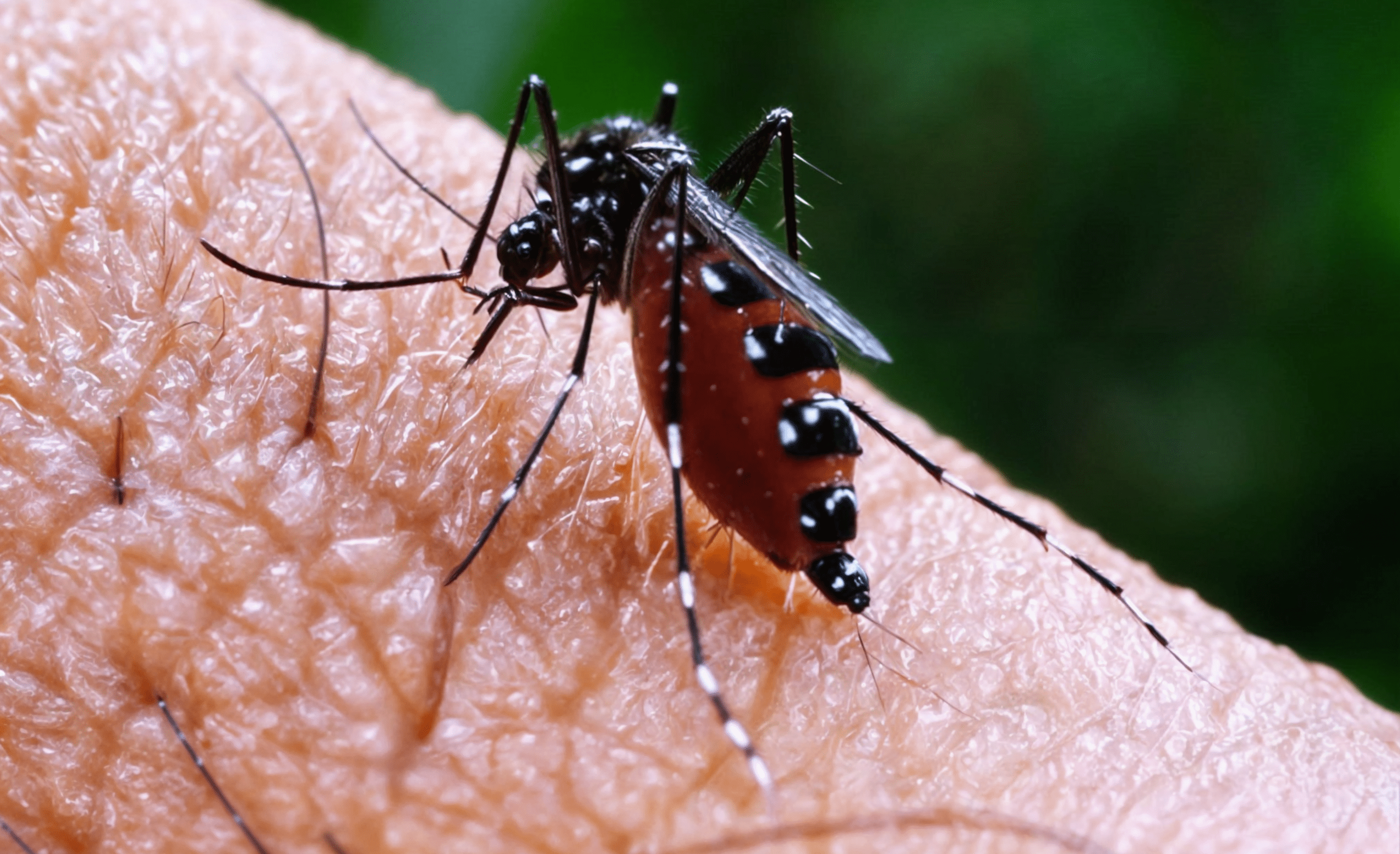
How To Survive Dengue Fever
Welcome to our guide on how to survive Dengue Fever! Tackling this mosquito-borne illness can be daunting, but fear not – armed with the right knowledge and precautions, you can navigate through it like a pro.
Let’s dive into understanding Dengue Fever and learn how to protect ourselves from its grasp. What is Dengue Fever?
Understanding Dengue Fever
Dengue Fever is a viral illness transmitted by mosquitoes carrying the dengue virus. Understanding this disease involves knowing its different strains – DEN-1, DEN-2, DEN-3, and DEN-4. These strains can cause mild to severe symptoms in infected individuals.
The virus affects your body by targeting white blood cells and causing flu-like symptoms such as high fever, severe headache, joint and muscle pain, rash, and nausea. In some cases, Dengue Fever can lead to potentially life-threatening complications like Dengue Hemorrhagic Fever or Dengue Shock Syndrome.
It’s crucial to be aware of the risk factors for Dengue Fever transmission. Mosquito bites are the primary mode of infection, especially in tropical and subtropical regions where these insects thrive. Preventive measures such as using mosquito repellent and wearing protective clothing can help reduce the chances of contracting the virus.
Stay informed about Dengue Fever to protect yourself and your loved ones from this prevalent disease worldwide.
Common Symptoms and How to Recognize Them
Dengue fever can often begin with symptoms that mimic the flu, making it challenging to diagnose in its early stages. The most common signs include sudden high fever, severe headache (especially behind the eyes), muscle and joint pain, fatigue, nausea, vomiting, and a skin rash.
If you experience any of these symptoms after being in an area where dengue is prevalent or have been bitten by mosquitoes, it’s crucial to seek medical attention promptly. Additionally, lookout for warning signs such as persistent vomiting, severe abdominal pain, bleeding gums or nosebleeds – as these could indicate a more severe form of dengue requiring immediate medical intervention.
Early detection plays a crucial role in managing dengue fever effectively. Remember that timely diagnosis and treatment can significantly improve your chances of recovery from this mosquito-borne illness. Stay vigilant and listen to your body’s signals if you suspect you may have contracted dengue fever.
Causes and Transmission of Dengue Fever
Dengue fever is caused by the bite of an infected Aedes mosquito, primarily the Aedes aegypti species. These mosquitoes are most active during the day, especially in the early morning and evening hours. When a mosquito carrying the dengue virus bites a human, it transmits the virus into their bloodstream.
The virus then multiplies in the person’s body, causing symptoms to appear within 4-10 days after being bitten. Dengue fever is not contagious and cannot be spread directly from person to person. However, if another mosquito bites an infected individual during this period, it can pick up the virus and transmit it to someone else when it feeds again.
Factors such as urbanization, population growth, inadequate sanitation practices, and climate change have contributed to the increased transmission of dengue fever in recent years. It is essential to take preventive measures such as eliminating breeding sites for mosquitoes and using insect repellent to reduce the risk of contracting this potentially serious disease.
Prevention Methods and Tips
Prevention is key when it comes to Dengue Fever. One of the most important steps you can take is to eliminate mosquito breeding sites around your home. Make sure there is no stagnant water collecting in pots, tires, or other containers where mosquitoes can lay their eggs.
Using mosquito repellent containing DEET on exposed skin and clothing can also help prevent mosquito bites. Wearing long-sleeved shirts and pants, especially during dawn and dusk when mosquitoes are most active, provides an added layer of protection.
Installing window screens and using bed nets can create a barrier between you and mosquitoes while sleeping. Additionally, keeping your surroundings clean and clutter-free reduces hiding spots for mosquitoes during the day.
Community efforts such as fogging or spraying insecticides in high-risk areas can also help reduce the mosquito population. By staying vigilant and proactive in implementing these prevention methods, you can significantly lower your risk of contracting Dengue Fever.
Treatment Options for Dengue Fever
When it comes to treating dengue fever, there is currently no specific medication or cure available. However, the focus is on managing symptoms and providing supportive care to help the body recover. One of the key aspects of treatment for dengue fever is adequate rest. Resting allows the body to fight off the virus and regain strength.
It’s important to stay hydrated by drinking plenty of fluids like water, coconut water, or oral rehydration solutions. This helps prevent dehydration, a common complication of dengue fever. In some cases where symptoms are severe or complications arise, hospitalization may be necessary.
Medical professionals can provide intravenous fluids and monitor your condition closely. Pain relievers such as acetaminophen can help reduce fever and alleviate body aches. However, avoid taking aspirin or ibuprofen as they can increase the risk of bleeding in dengue patients.
Always consult with a healthcare provider for proper guidance on managing dengue fever symptoms effectively.
Coping with the Illness: Home Remedies and Self-Care
When dealing with dengue fever, it’s crucial to prioritize self-care and explore home remedies to alleviate symptoms. Hydration is key – drink plenty of fluids like water, coconut water, or herbal teas to stay hydrated and help your body recover. Rest is equally essential; listen to your body and get ample rest to aid in the healing process.
Eating nutritious foods can also play a role in boosting your immune system. Opt for easily digestible meals rich in vitamins and minerals such as fruits, vegetables, and lean proteins. Herbal remedies like papaya leaf extract have been traditionally used to increase platelet count in some cases of dengue fever.
Additionally, managing fever with lukewarm sponge baths or cooling gels can provide relief from discomfort. Keep a close eye on any warning signs that may indicate severe dengue and seek medical attention promptly if needed. Prioritizing self-care during this time is crucial for a speedier recovery process.
Support and Resources for Patients with Dengue Fever
Navigating through a dengue fever diagnosis can be overwhelming, but know that you are not alone in this battle. There are various support systems and resources available to help patients cope with the illness. Connecting with local healthcare professionals is crucial.
They can provide guidance on managing symptoms and offer medical advice tailored to your specific case. Additionally, online forums and support groups can be valuable sources of information and comfort. Interacting with others who have experienced dengue fever firsthand can help alleviate feelings of isolation.
Many organizations also offer educational materials and resources about dengue fever. These materials can empower patients by providing them with knowledge about the disease and how to effectively manage it. Remember, seeking support from loved ones is equally important during this time.
Their emotional encouragement and practical assistance can make a significant difference in your journey towards recovery. By utilizing these support systems and resources, you can navigate the challenges posed by dengue fever with resilience and strength.
Conclusion: Staying Safe and Informed about Dengue Fever
Staying safe and informed about Dengue Fever is crucial in preventing the spread of this potentially dangerous illness. By understanding the symptoms, causes, and transmission of Dengue Fever, you can take proactive steps to protect yourself and your loved ones.
Remember to implement prevention methods such as eliminating standing water around your home, using mosquito repellent, and wearing protective clothing. If you suspect you have Dengue Fever, seek medical attention promptly to receive proper treatment.
Coping with the illness may be challenging, but by following self-care tips and home remedies, you can alleviate symptoms and support your recovery. Additionally, don’t hesitate to reach out for support from healthcare professionals or online resources if needed.
By staying informed about Dengue Fever and taking necessary precautions, you can reduce the risk of contracting this virus and help keep yourself healthy. Stay vigilant, stay educated, and stay safe.



